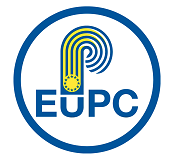2020
The plastics tax proceeded in Brussels is a threat to the environmental goals of Poland and the entire EU
PUPC Press Release 05.03.2020
After the last summit of the European Council in Brussels, work is ongoing on a new plastics tax. According to experts, the primal goal is to fill the budget hole of about 75 billion euros caused by Brexit.
“The tax is a threat to the entire plastics and recycling industry. It will hit the poorest, contributing, among others to a significant increase in food prices “ believes Robert Szyman from Polish Union of Plastics Converters
The plastics tax appeared as one of the proposals to supplement the revenues of the EU budget in the years 2021-2027. The initial amount of tax was set at the level from EUR 0.8 to even 1 for each kilogram of non-recycled plastics, so twice more than actual estimated value of these materials on the market. According to preliminary calculations, annual revenues from the EU budget can amount to even EUR 9.7 billion.
“In the currently proposed form, the plastics tax will hit primarily countries like Poland, where the process of increasing waste recycling requires further significant expenditures both in local governments and at the national level. Instead of investing in innovation and new technologies, we will have to pay punishments counted in billions to fund the EU budget and non-environmental financial goals. This can have catastrophic effects not only for small and medium-sized enterprises who dominate in the plastics processing industry, but also for local governments and all entities involved in the development of the circular economy” argues Robert Szyman from the Polish Union of Plastics Converters.
Representatives of the processing industry indicate that the implementation of the tax will not only impede or decrease the level of plastic recycling, but will even weaken the real competences owned by local governments, national authorities and private business in this area. This, in turn, may block the implementation of the ambitious environmental goals of the European Union by 2030. The largest costs will be borne by Poland and the countries that joined the EU after 2004, which will further reduce their ability to compete in the community market.
“The plastics tax is a drastic case of reaching into the pockets of the poorest to fill a budget hole. Stronger member countries, that had more time to prepare modern infrastructure, and companies operating on their territory will be much less affected by the costs of this tax. In Poland, an additional challenge will be the inevitable increase of food prices, which will naturally burden low-income households. The estimated impact of this tax on food prices can be even + 0.7 percent” adds Robert Szyman.
The plastics processing industry strongly supports EU, national and local solutions aimed at increasing the efficiency of waste recycling as part of the circular economy. However, the objection of the industry is raised not only by the amount and construction of the plastics tax, but also by the mode in which the new tax is being processed. The European Commission has not yet presented any analysis of the impact of the proposed solutions on the business environment. A real dialogue with the social side in this area is also limited.
The plastics processing industry in Poland includes over 7500 enterprises, mainly SMEs, and employs around of 160,000 people.
Additional information is provided by Maciej Powroźnik and Robert Szyman.



Download